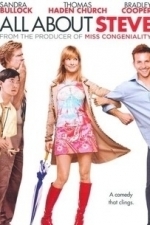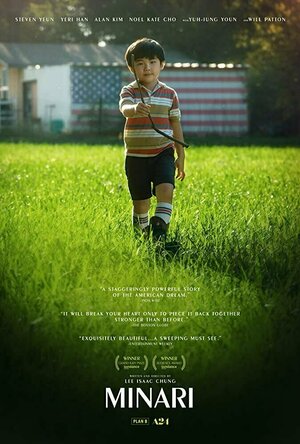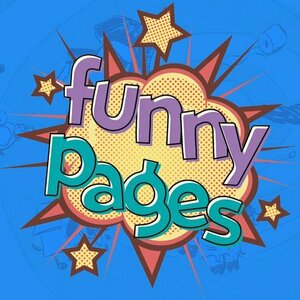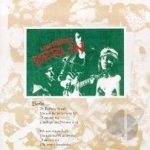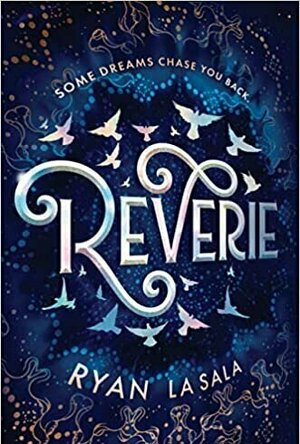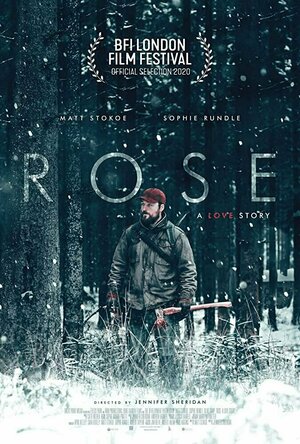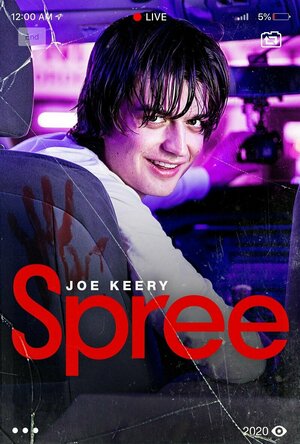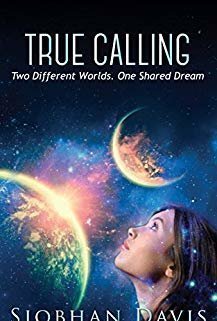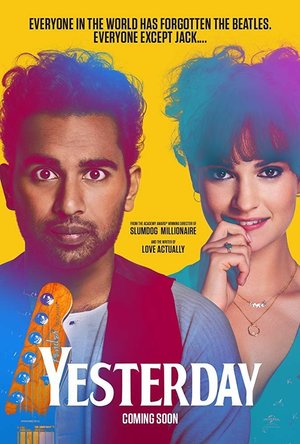Search
Search results
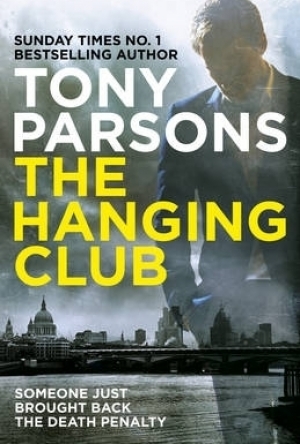
The Hanging Club
Book
"Tony Parsons puts you right there in every scene he writes. I love that kind of storytelling and...
Phillip McSween (751 KP) rated All About Steve (2009) in Movies
Jun 15, 2020
A Movie About a Crossword Puzzle Designer? Ummm...
With a mindblowing 6% Rating on Rotten Tomatoes (mindblowing because it’s too high), All About Steve is the story of a crossword puzzle designer who travels across the country with the hopes of convincing a CNN newsreporter that they belong together. I can feel your excitement. It’s palpable.
Acting: 3
Have you ever seen a mouse try and get off of a glue trap? That’s the equivalent of the acting work in this movie. Let’s start with the woman of the hour, Sandra Bullock playing the leading role of Mary Horowitz. I couldn’t help but think as she runs through her lines, “Do you even want to be on set right now?” She reads the lines of her character like a robocaller at times. I can actually say that for quite a few of the actors that bought into this dud.
Beginning: 6
I’ve seen worse starts to movies, I’ll be honest. The career fair scene is actually pretty hilarious which is probably about the only nice thing I have to say about this movie. If the entire movie had been like this, the overall score would have been double. Unfortunately the movie still would have been shit.
Characters: 5
I’ve always said, if you hate the main character of a movie, there’s a good chance you’re going to hate the movie. That theory definitely holds true here as Mary pains me with every single scene I watch her in. And the way they paint Bradley Cooper’s character Steve out to be such a jerk is just wrong. I mean this a reverse Pepe Le Peu situation we got going on here but he is the one we’re supposed to be mad at? Nightmare.
Cinematography/Visuals: 5
Conflict: 1
Yeah, there’s nothing I care about that’s happening throughout the duration of this movie. I could care less about Mary’s quest to win Steve because it’s just wrong. She’s a psycopath! When I say, “Nothing to see here!” I mean it.
Entertainment Value: 2
Ok, so here’s why I gave it a 2 despite how dreadful the entire movie was: I kept waiting to see how much worse things would get. The further I went down the rabbit hole, things just got more and more painful. Ever watch elementary school kids play basketball? Pretty much the same kind of train wreck here.
Memorability: 0
Pace: 0
Considering this is one of the worst movies imaginable, it’s no secret that “snail’s pace” doesn’t do it justice. Getting through All About Steve almost requires much drinking. Sure, you can survive it sober. Not advisable.
Plot: 1
It’s a story that makes no sense revolving around characters that don’t have a single solid motivation to their name. Even when you think for a moment that things might redeem themselves, the movie manages to set itself on fire again. Lost count of the number of times I asked myself, “Where the hell is this going?”
Resolution: 3
Overall: 26
Maybe it was because I was tired. Maybe it’s because I think Sandra Bullock is beautiful and who the hell would be stupid enough to run from that? Maybe it was because I had just watched A Quiet Place right before and was blown away by how incredible it was. Or maybe…All About Steve is just a terrible terrible movie. Yeah, I think I’ll go with the latter.
Acting: 3
Have you ever seen a mouse try and get off of a glue trap? That’s the equivalent of the acting work in this movie. Let’s start with the woman of the hour, Sandra Bullock playing the leading role of Mary Horowitz. I couldn’t help but think as she runs through her lines, “Do you even want to be on set right now?” She reads the lines of her character like a robocaller at times. I can actually say that for quite a few of the actors that bought into this dud.
Beginning: 6
I’ve seen worse starts to movies, I’ll be honest. The career fair scene is actually pretty hilarious which is probably about the only nice thing I have to say about this movie. If the entire movie had been like this, the overall score would have been double. Unfortunately the movie still would have been shit.
Characters: 5
I’ve always said, if you hate the main character of a movie, there’s a good chance you’re going to hate the movie. That theory definitely holds true here as Mary pains me with every single scene I watch her in. And the way they paint Bradley Cooper’s character Steve out to be such a jerk is just wrong. I mean this a reverse Pepe Le Peu situation we got going on here but he is the one we’re supposed to be mad at? Nightmare.
Cinematography/Visuals: 5
Conflict: 1
Yeah, there’s nothing I care about that’s happening throughout the duration of this movie. I could care less about Mary’s quest to win Steve because it’s just wrong. She’s a psycopath! When I say, “Nothing to see here!” I mean it.
Entertainment Value: 2
Ok, so here’s why I gave it a 2 despite how dreadful the entire movie was: I kept waiting to see how much worse things would get. The further I went down the rabbit hole, things just got more and more painful. Ever watch elementary school kids play basketball? Pretty much the same kind of train wreck here.
Memorability: 0
Pace: 0
Considering this is one of the worst movies imaginable, it’s no secret that “snail’s pace” doesn’t do it justice. Getting through All About Steve almost requires much drinking. Sure, you can survive it sober. Not advisable.
Plot: 1
It’s a story that makes no sense revolving around characters that don’t have a single solid motivation to their name. Even when you think for a moment that things might redeem themselves, the movie manages to set itself on fire again. Lost count of the number of times I asked myself, “Where the hell is this going?”
Resolution: 3
Overall: 26
Maybe it was because I was tired. Maybe it’s because I think Sandra Bullock is beautiful and who the hell would be stupid enough to run from that? Maybe it was because I had just watched A Quiet Place right before and was blown away by how incredible it was. Or maybe…All About Steve is just a terrible terrible movie. Yeah, I think I’ll go with the latter.
Bob Mann (459 KP) rated Minari (2020) in Movies
Apr 23, 2021
Ensemble cast acting (2 more)
Music and Cinematography
Engrossing story
A Korean Hillbilly Elegy, done right
In "Minari", a struggling Korean immigrant family - the Yi's led by Jacob (Steven Yeun) and Monica (Yeri Han) - leave California for Arkansas farmland to seek a better life. While employed sexing chicks at a factory, Jacob dreams of farming the land on which they live to improve their lives. But will his obsession for this dream stand between him and his family?
The tale is told through the eyes of young David (Alan S. Kim), who is struggling with a hole in the heart and doubts about his mortality. The arrival of Monica's mother (Yuh-Jung Youn) is resented by David, but the woman is wise (as well as foul mouthed) and perhaps the pair will eventually learn to respect one another?
Positives:
- Gloriously bucolic cinematography (by Lachlan Milne) frames an engrossing story of an immigrant family striving for the American dream. The fact that it is semi-biographical for the writer/director Lee Isaac Chung (also Oscar nominated for both) makes it all the more fascinating.
- All of the leading cast work fabulously as an ensemble. Steven Yeun and Yuh-Jung Youn have all the Oscar nomination glory (with Youn as the Grandmother odds-on to win the Supporting Actress award on Sunday). But Yeri Han is also great and the film wouldn't work unless the two child actors (Alan Kim and Noel Cho) delivered, which they do in spades.
- The music, by Emile Mosseri, is strikingly good and - deservedly - also Oscar nominated.
Negatives:
- The ending. Now, I'm all for leaving things in a thoughtful way, allowing the viewer to ponder on things. But this ending was a little too obscure for me. You need to understand (with thanks to this article) that the vegetable Minari purifies (water), grows in unfavourable soils and only really thrives in its second season. Now, forgive me for not being 'up' on my Korean plant botany, but this was too much of a leap for me. For the uninitiated (I assume 95% of the audience) the ending will feel abrupt and unsatisfying.
Summary Thoughts on "Minari":
Having watched "Hillbilly Elegy" and "Minari" on consecutive nights, I was struck by the unexpected parallels between the films (over and above the Yi's calling themselves "Hillbillies"). Both feature a dysfunctional family (though less so here). And both also feature a lead character, from an impoverished background, trying to better themselves and follow the 'American dream'. And front and centre is the growing relationship between a young boy and their grandmother.
But there the similarities end. For I just loved the simplicity of the story-telling in "Minari". No fancy flashbacks and disjointed timeline here. And a sense that you were really in on the journey of both Jacob and his farm and of the relationship between David and his Grandma.
This was heading at one point for a 10 star rating for me. But - for me anyway - the obscurity of the ending left me with a "WTF" feeling. So I've tempered my rating. Still a great film though, and recommended.
(For the full graphical review, please check out the post on One Mann's Movies on the web or Facebook. Thanks).
The tale is told through the eyes of young David (Alan S. Kim), who is struggling with a hole in the heart and doubts about his mortality. The arrival of Monica's mother (Yuh-Jung Youn) is resented by David, but the woman is wise (as well as foul mouthed) and perhaps the pair will eventually learn to respect one another?
Positives:
- Gloriously bucolic cinematography (by Lachlan Milne) frames an engrossing story of an immigrant family striving for the American dream. The fact that it is semi-biographical for the writer/director Lee Isaac Chung (also Oscar nominated for both) makes it all the more fascinating.
- All of the leading cast work fabulously as an ensemble. Steven Yeun and Yuh-Jung Youn have all the Oscar nomination glory (with Youn as the Grandmother odds-on to win the Supporting Actress award on Sunday). But Yeri Han is also great and the film wouldn't work unless the two child actors (Alan Kim and Noel Cho) delivered, which they do in spades.
- The music, by Emile Mosseri, is strikingly good and - deservedly - also Oscar nominated.
Negatives:
- The ending. Now, I'm all for leaving things in a thoughtful way, allowing the viewer to ponder on things. But this ending was a little too obscure for me. You need to understand (with thanks to this article) that the vegetable Minari purifies (water), grows in unfavourable soils and only really thrives in its second season. Now, forgive me for not being 'up' on my Korean plant botany, but this was too much of a leap for me. For the uninitiated (I assume 95% of the audience) the ending will feel abrupt and unsatisfying.
Summary Thoughts on "Minari":
Having watched "Hillbilly Elegy" and "Minari" on consecutive nights, I was struck by the unexpected parallels between the films (over and above the Yi's calling themselves "Hillbillies"). Both feature a dysfunctional family (though less so here). And both also feature a lead character, from an impoverished background, trying to better themselves and follow the 'American dream'. And front and centre is the growing relationship between a young boy and their grandmother.
But there the similarities end. For I just loved the simplicity of the story-telling in "Minari". No fancy flashbacks and disjointed timeline here. And a sense that you were really in on the journey of both Jacob and his farm and of the relationship between David and his Grandma.
This was heading at one point for a 10 star rating for me. But - for me anyway - the obscurity of the ending left me with a "WTF" feeling. So I've tempered my rating. Still a great film though, and recommended.
(For the full graphical review, please check out the post on One Mann's Movies on the web or Facebook. Thanks).
Purple Phoenix Games (2266 KP) rated Funny Pages: A Comical Puzzle Game in Tabletop Games
May 26, 2021
I have been intellectually burned by Enigma Emporium before. So it was with a bruised ego that I agreed to check out their next game, Funny Pages. Now, I don’t fancy myself a fool, but boy did their previous offerings knock me down a peg. But what about an innocently-titled game about (and containing) comic book panels? So far I have solved two of the seven provided to me. Here we go again.
Funny Pages is a puzzle game for any number of players and any gaming skill level. In fact, as there are so few rules, this may be a somewhat perfect game (game?) for non-gamers. Read on.
DISCLAIMER: We were provided a prototype copy of the Promo Pack for the purposes of this preview. These are preview copy components, and I do not know for sure if the final components will be any different from these shown. You are invited to back the game through the Kickstarter campaign, or through any retailers stocking it after fulfillment. -T
To setup, open the envelope (or box, if playing the boxed final version) and display the cards. Done. Easy like Sunday morning.
Funny Pages is not a turn-based game, but rather an exercise in visual clue-hunting and some amount of Google-fu. In this Promo Pack, each card represents a day of the week, and some must be on Easy mode, because I was able to solve them pretty quickly. Others, I believe, echo the difficulty of the aforementioned Wish You Were Here.
In any case, the goal of this Promo Pack is to match up the puzzle with the correct day of the week. And while that sounds very easy, the puzzles certainly are not. Good luck to all who attempt!
Components. Well, these are large, oversized cards with linen finish and obviously amazing art. I am unable to speak on the final components, but have been assured that the game is 100% ready to go, so if it mimics the provided Promo Pack, these are a great size and feel.
I will be poring over these cards much much more until I absolutely figure every one of them out. I am still a bit away from that goal, but these puzzles are definitely more my speed than what I experienced previously. Some of the comics are actually funny, even when taken out of context of the game. I like the comic art style (naturally), and having clever puzzles embedded just makes them even more enjoyable.
I must admit that after solving a few of these I am feeling more confident in my ability to solve the others. I just need to take more time and think with alternate logic. Is alternate logic a thing? If not, I call dibs on coining the term. I very much enjoy these, and I think it is partly due to the fact that they look great and all seem to offer a different type of puzzle on each card. If this is something that piques your interest, then I recommend you check out the upcoming Kickstarter campaign to add this little gem to your collection. If nothing else, use it as a distraction for unwanted guests on your coffee table. Challenge them to solve the lot in a time frame and watch them go to town.
PS – Please do not ask me for hints. I may be wrong on some of my solutions.
Funny Pages is a puzzle game for any number of players and any gaming skill level. In fact, as there are so few rules, this may be a somewhat perfect game (game?) for non-gamers. Read on.
DISCLAIMER: We were provided a prototype copy of the Promo Pack for the purposes of this preview. These are preview copy components, and I do not know for sure if the final components will be any different from these shown. You are invited to back the game through the Kickstarter campaign, or through any retailers stocking it after fulfillment. -T
To setup, open the envelope (or box, if playing the boxed final version) and display the cards. Done. Easy like Sunday morning.
Funny Pages is not a turn-based game, but rather an exercise in visual clue-hunting and some amount of Google-fu. In this Promo Pack, each card represents a day of the week, and some must be on Easy mode, because I was able to solve them pretty quickly. Others, I believe, echo the difficulty of the aforementioned Wish You Were Here.
In any case, the goal of this Promo Pack is to match up the puzzle with the correct day of the week. And while that sounds very easy, the puzzles certainly are not. Good luck to all who attempt!
Components. Well, these are large, oversized cards with linen finish and obviously amazing art. I am unable to speak on the final components, but have been assured that the game is 100% ready to go, so if it mimics the provided Promo Pack, these are a great size and feel.
I will be poring over these cards much much more until I absolutely figure every one of them out. I am still a bit away from that goal, but these puzzles are definitely more my speed than what I experienced previously. Some of the comics are actually funny, even when taken out of context of the game. I like the comic art style (naturally), and having clever puzzles embedded just makes them even more enjoyable.
I must admit that after solving a few of these I am feeling more confident in my ability to solve the others. I just need to take more time and think with alternate logic. Is alternate logic a thing? If not, I call dibs on coining the term. I very much enjoy these, and I think it is partly due to the fact that they look great and all seem to offer a different type of puzzle on each card. If this is something that piques your interest, then I recommend you check out the upcoming Kickstarter campaign to add this little gem to your collection. If nothing else, use it as a distraction for unwanted guests on your coffee table. Challenge them to solve the lot in a time frame and watch them go to town.
PS – Please do not ask me for hints. I may be wrong on some of my solutions.
Natasha Khan recommended Berlin by Lou Reed in Music (curated)
Ivana A. | Diary of Difference (1171 KP) rated Reverie in Books
Oct 5, 2020
I wanted to love Reverie by Ryan La Sala so much!
Reverie has a wonderful cover that draws you in immediately. The plot mentions a boy and a fantasy world that revolves around dreams. Everything I hoped this book would be – it wasn’t.
Kane is a gay teenager who is trying to pick up the pieces of his life back together after an attack leaves him with no memories of the past. He is in the search of who he is and who he was, and he discovers an alternate reality that he was involved in.
Reveries are worlds born from a person’s private fantasies, and once they manifest they can only be unraveled by bringing their conflicts to a resolution. Reveries have rules and plots, magic and monsters – anything you could wish for. And one wrong step can twist the entire thing into a lethal nightmare maze.
Sounds complicated already?
What if I told you that this is only from the blurb and the book doesn’t really explain these things at all?
Kane is an unraveler, together with The Others. Or at least he was, until one of The Others purged Kane of his memories. And here we are now, with Kane trying to solve the mystery and fight against evil.
I jumped into this book very eagerly, and was disappointing immediately, within the first couple of pages. The reveries and their whole concept were quite confusing, to the point of me not knowing whether the characters are now in a reverie, or in their real world.
Reverie had an amazing concept and it could’ve been done way better than this. I am just disappointed. It all seemed a bit messy and felt like it wasn’t thought through…
I didn’t connect with any of the characters, except for Kane, for the below reasons. And that was it… I didn’t care about any of the others, and there were quite a few characters.
One thing that annoyed me about Reverie, was the exaggeration of the #OwnVoices.
I am not against it, on the contrary! I love equality and I love diversity, and I share love everywhere and to everyone, and if you know me in real life, you will know this about me. We are all equal and different at the same time, and that is the unique thing that connects us all.
However, this book keeps mentioning that Kane is gay. And Kane is a lovely character. He is smart and he is brave. His memories were lost and is desperately trying to find out who he is, who he was, who are his true friends, who is good and who is evil. He doesn’t take for granted on what people tell him. He is AMAZING. Kane was so much more than just gay. But the author kept trying so hard to put an #OwnVoices hashtag on this book, that is was quite aggressive and off-putting. I love books that feature #OwnVoices, but Ryan, please – a little bit of modesty would’ve been nice.
I keep feeling this pressure of trying to write a book review that will not offend anyone, and I don’t mean to offend anyone, but I need to say that sometimes, there can be such a thing as “too much OwnVoicing” in a book. And we shouldn’t be afraid to point it out!
I am really sad about this one, guys. Honestly, I expected it to love it so bad, and now I feel down. I wouldn’t recommend it, but if you think you will love it, please pick it up. You are valid!
Reverie has a wonderful cover that draws you in immediately. The plot mentions a boy and a fantasy world that revolves around dreams. Everything I hoped this book would be – it wasn’t.
Kane is a gay teenager who is trying to pick up the pieces of his life back together after an attack leaves him with no memories of the past. He is in the search of who he is and who he was, and he discovers an alternate reality that he was involved in.
Reveries are worlds born from a person’s private fantasies, and once they manifest they can only be unraveled by bringing their conflicts to a resolution. Reveries have rules and plots, magic and monsters – anything you could wish for. And one wrong step can twist the entire thing into a lethal nightmare maze.
Sounds complicated already?
What if I told you that this is only from the blurb and the book doesn’t really explain these things at all?
Kane is an unraveler, together with The Others. Or at least he was, until one of The Others purged Kane of his memories. And here we are now, with Kane trying to solve the mystery and fight against evil.
I jumped into this book very eagerly, and was disappointing immediately, within the first couple of pages. The reveries and their whole concept were quite confusing, to the point of me not knowing whether the characters are now in a reverie, or in their real world.
Reverie had an amazing concept and it could’ve been done way better than this. I am just disappointed. It all seemed a bit messy and felt like it wasn’t thought through…
I didn’t connect with any of the characters, except for Kane, for the below reasons. And that was it… I didn’t care about any of the others, and there were quite a few characters.
One thing that annoyed me about Reverie, was the exaggeration of the #OwnVoices.
I am not against it, on the contrary! I love equality and I love diversity, and I share love everywhere and to everyone, and if you know me in real life, you will know this about me. We are all equal and different at the same time, and that is the unique thing that connects us all.
However, this book keeps mentioning that Kane is gay. And Kane is a lovely character. He is smart and he is brave. His memories were lost and is desperately trying to find out who he is, who he was, who are his true friends, who is good and who is evil. He doesn’t take for granted on what people tell him. He is AMAZING. Kane was so much more than just gay. But the author kept trying so hard to put an #OwnVoices hashtag on this book, that is was quite aggressive and off-putting. I love books that feature #OwnVoices, but Ryan, please – a little bit of modesty would’ve been nice.
I keep feeling this pressure of trying to write a book review that will not offend anyone, and I don’t mean to offend anyone, but I need to say that sometimes, there can be such a thing as “too much OwnVoicing” in a book. And we shouldn’t be afraid to point it out!
I am really sad about this one, guys. Honestly, I expected it to love it so bad, and now I feel down. I wouldn’t recommend it, but if you think you will love it, please pick it up. You are valid!
Lee (2222 KP) rated Rose: A Love Story (2020) in Movies
Oct 14, 2020
Married couple Sam (Matt Stokoe) and Rose (Sophie Rundle) are living a quiet, simple life in a remote woodland farmhouse. While Rose spends her days indoors, tapping out a novel on a typewriter, Sam is out in the peaceful, snow-covered woods, setting traps and hunting animals. But, right from the outset, it’s clear that this is anything but a relaxing couples retreat.
As Sam cautiously goes about his work, rifle in hand, it’s obvious that he is alert and on edge, flinching at the slightest sounds that come from beyond the trees. Persistent, ominous music also informs us that something isn't quite right and succeeds in putting us quickly on edge too. And when Sam does return to the farmhouse, we learn that Rose has been locked inside, with all the windows boarded up, only the slightest slivers of light entering the gloomy rooms.
Sam and Rose are clearly a couple in love, their actions and conversations appearing genuine and normal. But occasionally the topic of conversation veers towards the unusual, and we continue to be drip-fed even more sinister clues as to what’s actually going on in their lives. When Rose cuts herself while preparing dinner, black veins pulse throughout her finger. Meanwhile, Sam heads off to an ultraviolet-lit room, where he attaches leeches to his body, casually sitting to read a book while they set to work, gorging on his blood. When the couple head outside for a walk one night, Rose wears a face mask while Sam doesn’t. And she talks of “a poison inside her”. You have a fairly good idea of what's going on, but the answers to any questions you have don't come easy, and we're constantly left guessing at which direction the movie is going to take.
Jennifer Sheridan’s feature directorial debut has a wonderfully claustrophobic feel to it, perfectly capturing the feeling of isolation against the beautiful backdrop of a Welsh forest in Winter. Questions hang throughout - how did Rose get this way, what kind of life did the couple lead beforehand, what actually is this illness doing or going to do to her? We're kept in suspense throughout and even when a young runaway called Amber stumbles across the couple, and stays with them overnight, the answers still don’t come easy. Amber just has to accept the fact that Sam is dropping his trousers in front of her in order to attach leeches to himself. And that she must sleep with the ultraviolet light on in her room...
As we neared the very end of the movie, I began to wonder if any of those answers would ever come, or if we would be left to make our own minds up. But thankfully a quick and frantic last-minute change of pace changed all of that, and still managed to end on something of a cliffhanger!
Writer Matt Stokoe (who also plays Sam) says of ‘Rose’ that while watching traditional vampire movies he was struck by the macabre, horror aspects of the vampire genre and the general avoidance of emotional depth shown in the figure of the ‘monster’. The result of his observations is a beautifully simple movie that focuses more on the love of a married couple than the monster that threatens to overpower their relationship. Sam shows that he will do anything for Rose as they struggle with her life-altering illness. Theirs is indeed a true love story.
As Sam cautiously goes about his work, rifle in hand, it’s obvious that he is alert and on edge, flinching at the slightest sounds that come from beyond the trees. Persistent, ominous music also informs us that something isn't quite right and succeeds in putting us quickly on edge too. And when Sam does return to the farmhouse, we learn that Rose has been locked inside, with all the windows boarded up, only the slightest slivers of light entering the gloomy rooms.
Sam and Rose are clearly a couple in love, their actions and conversations appearing genuine and normal. But occasionally the topic of conversation veers towards the unusual, and we continue to be drip-fed even more sinister clues as to what’s actually going on in their lives. When Rose cuts herself while preparing dinner, black veins pulse throughout her finger. Meanwhile, Sam heads off to an ultraviolet-lit room, where he attaches leeches to his body, casually sitting to read a book while they set to work, gorging on his blood. When the couple head outside for a walk one night, Rose wears a face mask while Sam doesn’t. And she talks of “a poison inside her”. You have a fairly good idea of what's going on, but the answers to any questions you have don't come easy, and we're constantly left guessing at which direction the movie is going to take.
Jennifer Sheridan’s feature directorial debut has a wonderfully claustrophobic feel to it, perfectly capturing the feeling of isolation against the beautiful backdrop of a Welsh forest in Winter. Questions hang throughout - how did Rose get this way, what kind of life did the couple lead beforehand, what actually is this illness doing or going to do to her? We're kept in suspense throughout and even when a young runaway called Amber stumbles across the couple, and stays with them overnight, the answers still don’t come easy. Amber just has to accept the fact that Sam is dropping his trousers in front of her in order to attach leeches to himself. And that she must sleep with the ultraviolet light on in her room...
As we neared the very end of the movie, I began to wonder if any of those answers would ever come, or if we would be left to make our own minds up. But thankfully a quick and frantic last-minute change of pace changed all of that, and still managed to end on something of a cliffhanger!
Writer Matt Stokoe (who also plays Sam) says of ‘Rose’ that while watching traditional vampire movies he was struck by the macabre, horror aspects of the vampire genre and the general avoidance of emotional depth shown in the figure of the ‘monster’. The result of his observations is a beautifully simple movie that focuses more on the love of a married couple than the monster that threatens to overpower their relationship. Sam shows that he will do anything for Rose as they struggle with her life-altering illness. Theirs is indeed a true love story.
Sarah (7800 KP) rated Spree (2020) in Movies
Jan 24, 2021
Different
In a world filled with YouTubers and social media influencers, it was inevitable that eventually we’d get a film shot in the style of a social media stream. We’ve seen similar with films like Unfriended and Searching, taking on the likes of social media whilst shot entirely from a webcam. However Spree is the first that I’ve seen that takes on social media almost entirely from live streaming or go pro recordings, and overall it’s a pretty decent attempt.
Spree is a 2020 comedy horror film starring Joe Keery as Kurt Kunkle, a failing social media influencer who works as a driver for a rideshare app called Spree. Fed up of his lack of viewers, Kurt decides to fit out his car with cameras and livestream “The Lesson”, where he instructs viewers on how to become famous on social media while picking up passengers and murdering them. One of the passengers he lets go is comedian Jessie Adams (Sasheer Zamata), a star and social media success who Kurt becomes obsessed with over the course of his murderous evening.
Spree is definitely a fun film. The comedic horror style works very well, especially in the first half although later on it does make way for a more serious side. There’s a decent amount of blood and gore too and it has a wonderfully cheesy B-movie vibe about it. What makes Spree so fun though is Joe Keery. His performance as an influencer is entirely believable and it’s his charisma and baby-faced innocence that makes this film watchable. He spends the entirety of the film like he’s high and hyped up on energy drinks and while this does make his performance a little over the top, this is exactly what Spree needs. David Arquette as Kurt’s dad also brings a lot of fun although his screen time is sadly lacking.
Despite Spree’s dark comedic feel, there’s a more serious story and commentary underlying this film. It might look as though it’s making light of social media influencers, but actually it’s making a rather serious point of the pressures and negatives of the constant need influencers have to be liked and obtain more followers. Kurt’s story is rather sad, and even the other characters like Jessie are shown to have their own stories but still stuck in the same social media behaviour. The live streams used to shoot most of this film, with the likes and comments from viewers, emphasise the pitfalls and real life issues with social media.
Admittedly this live stream method does get a little thin by the end of the 90 minute run time, and after the initial few murders, it’s only Keery’s performance that holds the film up to the end. It isn’t helped that aside from Kurt, none of his victims are particularly likeable and it makes them very difficult to relate to or care about. And this also goes for Jessie who despite her heroine status, becomes unlikeable due to how she too bows to the pressure of social media.
I’m not a fan of the YouTube and influencer revolution, so for me Spree was an interesting take on this and social media in general. It has a good point to make and a serious message, although this may be overshadowed by the dark comedy and horror. With a great turn from Joe Keery, it’s a fun film but not entirely memorable.
Spree is a 2020 comedy horror film starring Joe Keery as Kurt Kunkle, a failing social media influencer who works as a driver for a rideshare app called Spree. Fed up of his lack of viewers, Kurt decides to fit out his car with cameras and livestream “The Lesson”, where he instructs viewers on how to become famous on social media while picking up passengers and murdering them. One of the passengers he lets go is comedian Jessie Adams (Sasheer Zamata), a star and social media success who Kurt becomes obsessed with over the course of his murderous evening.
Spree is definitely a fun film. The comedic horror style works very well, especially in the first half although later on it does make way for a more serious side. There’s a decent amount of blood and gore too and it has a wonderfully cheesy B-movie vibe about it. What makes Spree so fun though is Joe Keery. His performance as an influencer is entirely believable and it’s his charisma and baby-faced innocence that makes this film watchable. He spends the entirety of the film like he’s high and hyped up on energy drinks and while this does make his performance a little over the top, this is exactly what Spree needs. David Arquette as Kurt’s dad also brings a lot of fun although his screen time is sadly lacking.
Despite Spree’s dark comedic feel, there’s a more serious story and commentary underlying this film. It might look as though it’s making light of social media influencers, but actually it’s making a rather serious point of the pressures and negatives of the constant need influencers have to be liked and obtain more followers. Kurt’s story is rather sad, and even the other characters like Jessie are shown to have their own stories but still stuck in the same social media behaviour. The live streams used to shoot most of this film, with the likes and comments from viewers, emphasise the pitfalls and real life issues with social media.
Admittedly this live stream method does get a little thin by the end of the 90 minute run time, and after the initial few murders, it’s only Keery’s performance that holds the film up to the end. It isn’t helped that aside from Kurt, none of his victims are particularly likeable and it makes them very difficult to relate to or care about. And this also goes for Jessie who despite her heroine status, becomes unlikeable due to how she too bows to the pressure of social media.
I’m not a fan of the YouTube and influencer revolution, so for me Spree was an interesting take on this and social media in general. It has a good point to make and a serious message, although this may be overshadowed by the dark comedy and horror. With a great turn from Joe Keery, it’s a fun film but not entirely memorable.
Eleanor Luhar (47 KP) rated True Calling in Books
Jun 24, 2019
This was free in the Amazon Kindle store and I thought it looked pretty cool, so I downloaded it a few months ago. Despite being just 369 pages long, it took me a shockingly long time to read...
Ariana is now a citizen of Novo, where only the fittest humans were transported after the near-destruction of planet Earth. From very early on, we are introduced to Zane through Ari's dreams - but she has no idea who he is, or why she can see him in her sleep. We don't discover Zane's identity until much further through the book.
A matchmaking system is set up for all eligible young people, taking the name of "The Calling." Ari realises her feelings for the popular Cal Remus, and is luckily given the opportunity to be matched with him. The whole deal with "The Calling" reminds me very much of books such as The Selection and ?Matched.
Things seem to be going pretty well (despite the fact that Ariana is appalled at the way the government is choosing who can love who) until Ariana's father disappears and leaves behind some vital information. Suddenly, Ari isn't sure whether Cal can really be trusted, and Zane is beginning to contact her directly through her mind.
A small section of this book takes place back on Earth, told from Zane's perspective. He's working for an underground resistance movement, and is still infatuated with Ariana. He gets training to try and help him communicate with her, and Ariana's father has bestowed a dying wish upon him; to keep Ari away from Cal.
Things get pretty complicated, and the love triangle is both predictable and not at the same time. Ari doesn't remember how much she loved Zane, but can sense that there was some emotion there. Cal's father is clearly opposed to his son being associated with Ariana, and is also a despicable man in himself. There are even hints as to Cal being untrustworthy, which was something I didn't actually expect.
It's kind of a typical dystopian YA novel, but it does have some good twists. My main problem was with the lack of time-keeping; I couldn't tell whether things happened over a course of a few days or multiple months. Even if the time-frame was specified in some places, it still didn't feel like it passed in the intended way.
Another thing is that the characters spoke in a rather unnatural language. Extravagant words were unnecessarily used, coupled with overly-simple phrases. It just sounded wrong.
It took me a long time to read a relatively short book, which is always a bad sign. It wasn't painfully hard to read, but I wasn't really begging to read on either. That being said, I read a little into the first chapter of the sequel, Beyond Reach, which is included at the end of this ebook, and I am rather curious as to what's going on. Still, I don't know if I'm willing to spend any money on it.
So this wasn't a great book, but it wasn't bad. Some parts felt as though the author was trying a bit too hard to make the book seem more professional, which always irritates me. I think 2.5 stars is an appropriate rating for this.
Ariana is now a citizen of Novo, where only the fittest humans were transported after the near-destruction of planet Earth. From very early on, we are introduced to Zane through Ari's dreams - but she has no idea who he is, or why she can see him in her sleep. We don't discover Zane's identity until much further through the book.
A matchmaking system is set up for all eligible young people, taking the name of "The Calling." Ari realises her feelings for the popular Cal Remus, and is luckily given the opportunity to be matched with him. The whole deal with "The Calling" reminds me very much of books such as The Selection and ?Matched.
Things seem to be going pretty well (despite the fact that Ariana is appalled at the way the government is choosing who can love who) until Ariana's father disappears and leaves behind some vital information. Suddenly, Ari isn't sure whether Cal can really be trusted, and Zane is beginning to contact her directly through her mind.
A small section of this book takes place back on Earth, told from Zane's perspective. He's working for an underground resistance movement, and is still infatuated with Ariana. He gets training to try and help him communicate with her, and Ariana's father has bestowed a dying wish upon him; to keep Ari away from Cal.
Things get pretty complicated, and the love triangle is both predictable and not at the same time. Ari doesn't remember how much she loved Zane, but can sense that there was some emotion there. Cal's father is clearly opposed to his son being associated with Ariana, and is also a despicable man in himself. There are even hints as to Cal being untrustworthy, which was something I didn't actually expect.
It's kind of a typical dystopian YA novel, but it does have some good twists. My main problem was with the lack of time-keeping; I couldn't tell whether things happened over a course of a few days or multiple months. Even if the time-frame was specified in some places, it still didn't feel like it passed in the intended way.
Another thing is that the characters spoke in a rather unnatural language. Extravagant words were unnecessarily used, coupled with overly-simple phrases. It just sounded wrong.
It took me a long time to read a relatively short book, which is always a bad sign. It wasn't painfully hard to read, but I wasn't really begging to read on either. That being said, I read a little into the first chapter of the sequel, Beyond Reach, which is included at the end of this ebook, and I am rather curious as to what's going on. Still, I don't know if I'm willing to spend any money on it.
So this wasn't a great book, but it wasn't bad. Some parts felt as though the author was trying a bit too hard to make the book seem more professional, which always irritates me. I think 2.5 stars is an appropriate rating for this.
Gareth von Kallenbach (980 KP) rated Yesterday (2019) in Movies
Jun 28, 2019
A Fun Musical About What Matters Most In Life
When the lights go out all over the world struggling singer-songwriter, Jack Malik (Himesh Patel), is blindsided by a double decker bus. The bus knocks him off his bike and sends him flying across the pavement where he lands unconscious. When he wakes up he is missing his beard and a couple of front teeth. He thinks it just been the worst end of the worst day of his life. But he couldn’t be more wrong. Earlier he had decided to give up his quest for fame and go back to being a teacher. Despite his best friend, manager, fan since grade school Ellie (Lily James) trying hard to convince him to not give up on his dreams. But days after the crash Jack is still ready to hang it up. Elle as a present for Jack leaving the hospital gives him a brand new guitar. Jack decides to play a song but a great guitar needs a great song so he plays Yesterday by The Beattles. When he is finished Elle is almost in tears, his friends Nick and Carol (Harry Michell and Sophia Di Marino) are in sock.
They want to know where he came up with this amazing song. Jack tells them the greatest pop band in history…The Beattles. But they have no idea who that is and neither does the rest of the world. Now Jack is the only person in the world who knows the songs of one of the top selling iconic bands in history. It’s not long before the world comes to know of Jack Malik the single greatest song writer of all time. But will he be found out as a fraud, will fame and money change him and most importantly will he leave behind the people he cares for most.
This Danny Boyle (Trainspotting, Slumdog Millionaire) director comedy is original and well written, by Jack Barth (story) and RAbbey Mordue
ichard Curtis (screenplay). The story is part romantic comedy and part fantasy film. It’s original and fun but there are times that the story is clunky and oddly put together. There are times that feel like major events are skipped over. The soundtrack is definitely filled with The Beattles with some modern music sprinkled in, including Ed Sheerran who plays himself in the film. If you are a fan of The Beattles you will definitely enjoy the film and how they wind the music into the story. The cast is fun and fit well together. Patel is both awkward and troubled and he does a well in the lead. He also does a great job singing. Kate McKinnon (Ghostbusters, Saturday Night Live) is great as a money hungry music executive.
I admittedly am a huge fan of The Beattles and was very excited but premise of this film. At the very least I would be able to listen to good music for two hours. But I really enjoyed the originality and visuals that were put together. The story while clunky at times was overall fun to watch. When you thought it was predictable and knew where the film was taking you the story would divert slightly and surprise you. It is a fun date movie that worth the price of a movie ticket.
4 out of 5
http://sknr.net/2019/06/27/yesterday/
They want to know where he came up with this amazing song. Jack tells them the greatest pop band in history…The Beattles. But they have no idea who that is and neither does the rest of the world. Now Jack is the only person in the world who knows the songs of one of the top selling iconic bands in history. It’s not long before the world comes to know of Jack Malik the single greatest song writer of all time. But will he be found out as a fraud, will fame and money change him and most importantly will he leave behind the people he cares for most.
This Danny Boyle (Trainspotting, Slumdog Millionaire) director comedy is original and well written, by Jack Barth (story) and RAbbey Mordue
ichard Curtis (screenplay). The story is part romantic comedy and part fantasy film. It’s original and fun but there are times that the story is clunky and oddly put together. There are times that feel like major events are skipped over. The soundtrack is definitely filled with The Beattles with some modern music sprinkled in, including Ed Sheerran who plays himself in the film. If you are a fan of The Beattles you will definitely enjoy the film and how they wind the music into the story. The cast is fun and fit well together. Patel is both awkward and troubled and he does a well in the lead. He also does a great job singing. Kate McKinnon (Ghostbusters, Saturday Night Live) is great as a money hungry music executive.
I admittedly am a huge fan of The Beattles and was very excited but premise of this film. At the very least I would be able to listen to good music for two hours. But I really enjoyed the originality and visuals that were put together. The story while clunky at times was overall fun to watch. When you thought it was predictable and knew where the film was taking you the story would divert slightly and surprise you. It is a fun date movie that worth the price of a movie ticket.
4 out of 5
http://sknr.net/2019/06/27/yesterday/
